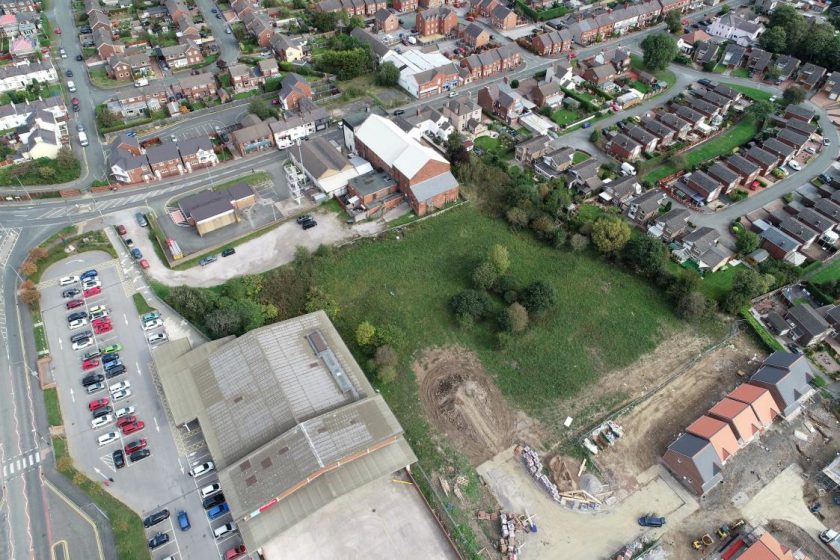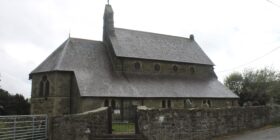Buckley: Flintshire planners recommended to approve major extra care facility plans amid music venue noise concerns

Flintshire Council planners have been recommended to give the green light to a large extra care facility with up to 90 beds and 12 bungalows built next door to a live music venue in Buckley.
The local authority has been developing extra care schemes across its main towns in Flintshire, ensuring that residents, especially the elderly and those with learning and physical disabilities, have access to necessary care and support.
With successful schemes already operational in Flint, Mold, Shotton, and Holywell, Buckley stands next in line to benefit.
However, concerns have been raised about the proximity of the proposed new development to the Grade II listed music venue, The Tivoli, which would be just metres away.
The Tivoli’s owners had previously raised concerns about how noise from their events could potentially disturb the future residents of the proposed facility.
The venue regularly hosts events that often extend late into the night, worries about noise disturbances for the elderly and special needs residents have been highlighted.
Additional concerns include noise from vehicle traffic and the logistics of event equipment and beer deliveries, all of which could disrupt the care facility residents.
The Tivoli was first built as a venue for the general public in 1880 when it was used as a picture house and also hosted travelling showmen.
The original building was later demolished and the Tivoli Theatre was built on the same site in 1925.
It was listed by Cadw in 1997 as a rare surviving example of an inter-war cinema.
The developers acknowledged the concerns, noting that detailed plans to address these issues will be addressed during the planning stage.
A report by Chief Planning Officer Andrew Farrow to be presented to the Flintshire Planning Committee on Wednesday notes: “There would be limited opportunities for a development of this size to be delivered in another part of Buckley, this site is centrally located and therefore suitable for older people/ those with learning and physical disabilities due to it being accessible for those with mobility problems and its proximity to local facilities.”
The proposal has sparked a mix of reactions within the community, evidenced by the nine letters of objection and two letters of support received.
Critics have highlighted a variety of concerns, including potential surface water and general drainage issues, the risk of light pollution from a permanently lit car park, and the potential negative impact on the culturally significant Tivoli venue.
Additionally, worries about Buckley being overcrowded and overdeveloped, with already strained local facilities such as healthcare services, traffic congestion, privacy concerns for neighbouring residents, and noise disturbances from nearby businesses.
On the flip side, supporters of the project believe it is ideally located near the town centre and accessible bus routes, bringing benefits to the local community through improved aesthetics of the area, job creation, and overall community welfare.
The report says that the, “current demand for extra care in Buckley is unknown as a waiting list would be opened when a scheme is developed.”
However, existing interest lists from other schemes and the SARTH register’s need for over 55’s and sheltered housing collectively indicate a significant unmet demand in the area.
The report notes that under planning policy in Wales, the developer is tasked with addressing and mitigating noise as part of their responsibility, ensuring that the new development does not adversely affect the amenity of future residents or lead to restrictions on existing premises.
Environmental Health officers have recommended a condition for comprehensive Noise Impact Assessments during the detailed design stage, emphasising the need for mitigation measures such as screening landscaping and enhanced glazing to protect both the development and the adjacent noise-generating businesses.
Moreover, the development’s impact on the Tivoli, a Grade II listed building with historical significance as an inter-war cinema or miner’s institute, has been considered, according to the report.
The building’s distinctive architectural features, primarily facing Brunswick Road, contribute to Flintshire’s cultural and historical landscape.
Despite the potential noise issues, measures would be implemented to ensure that the development does not negatively impact the Tivoli’s setting.
In his report, Mr. Farrow said: “This is an outline application for the erection of a 75 to 90 bed extra care facility to include supporting communal facilities and 12 bungalows and all ancillary works with all matters reserved for future consideration.”
“As such, the proposal is seeking permission for the principle of this form of development in this location.”
“It is considered that this proposal offers an excellent opportunity for a much-needed facility in the centre of one of Flintshire’s main settlements and that, moreover, this proposal is compliant with the relevant development plan policies.”
“Issues of the design and formation of the access, the design, appearance, and scale of the building, and other technical matters will be dealt with at the reserved matters stage.”
“The proposal is considered to be acceptable and, subject to the conditions outlined, it is recommended that the application is approved.”
Once outline permission for a planning application is granted, it means that the local planning authority has granted planning permission and established the principle of development.
Only the details can then be considered; this is known as reserved matters.
Flintshire Council’s planning committee will make a decision on the application at their meeting on February 7.
Spotted something? Got a story? Send a Facebook Message | A direct message on Twitter | Email: [email protected]Latest News









